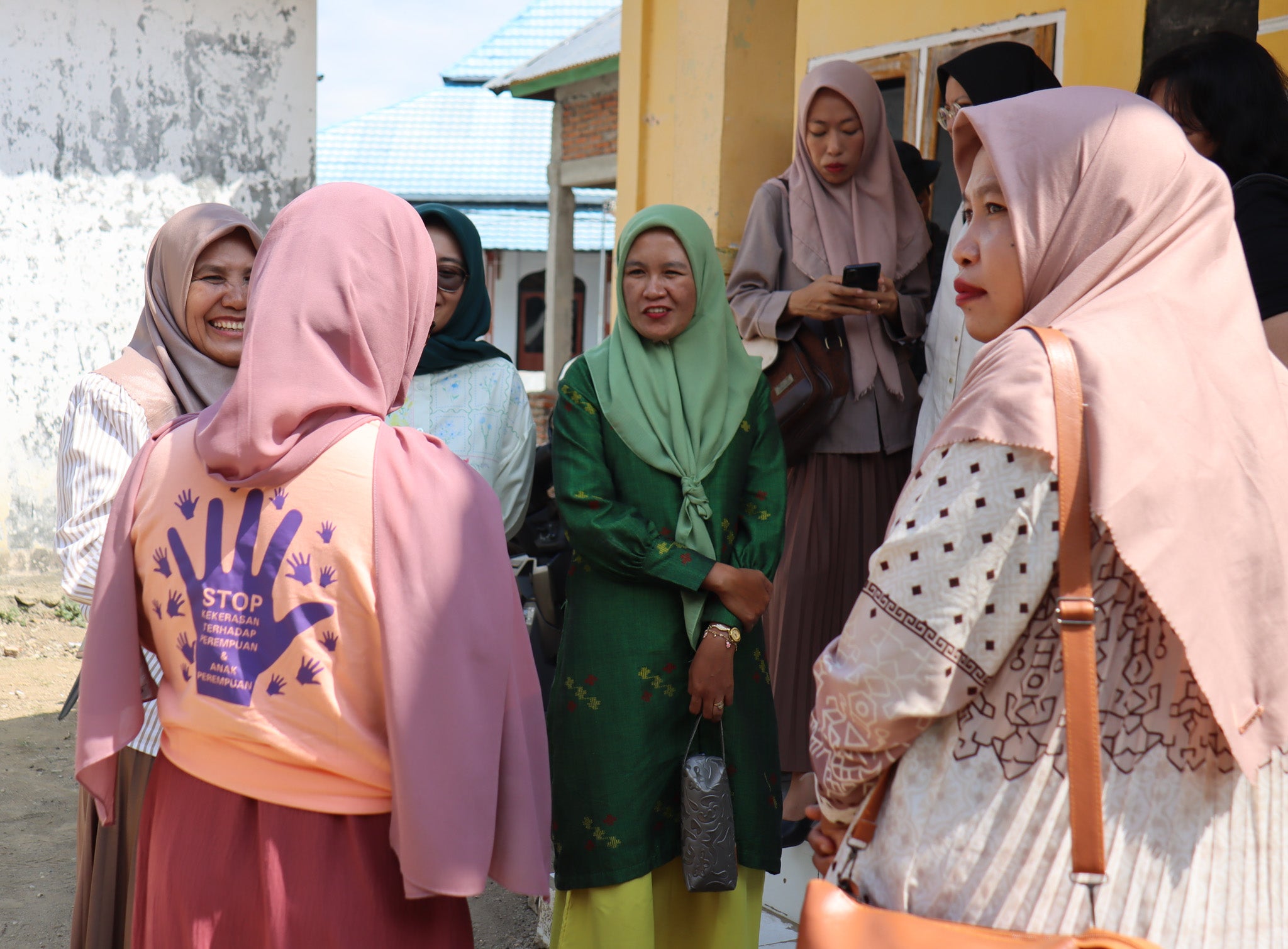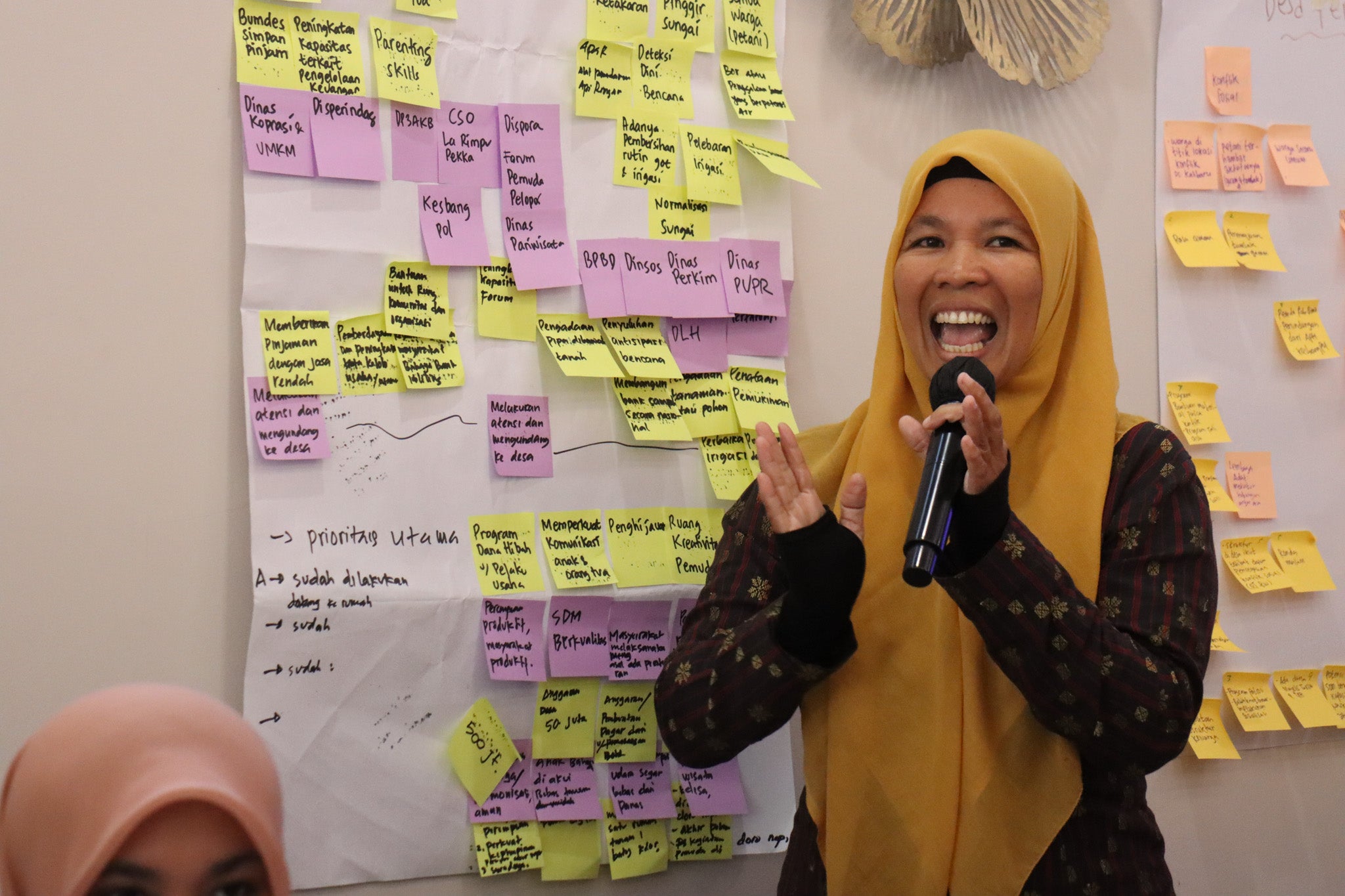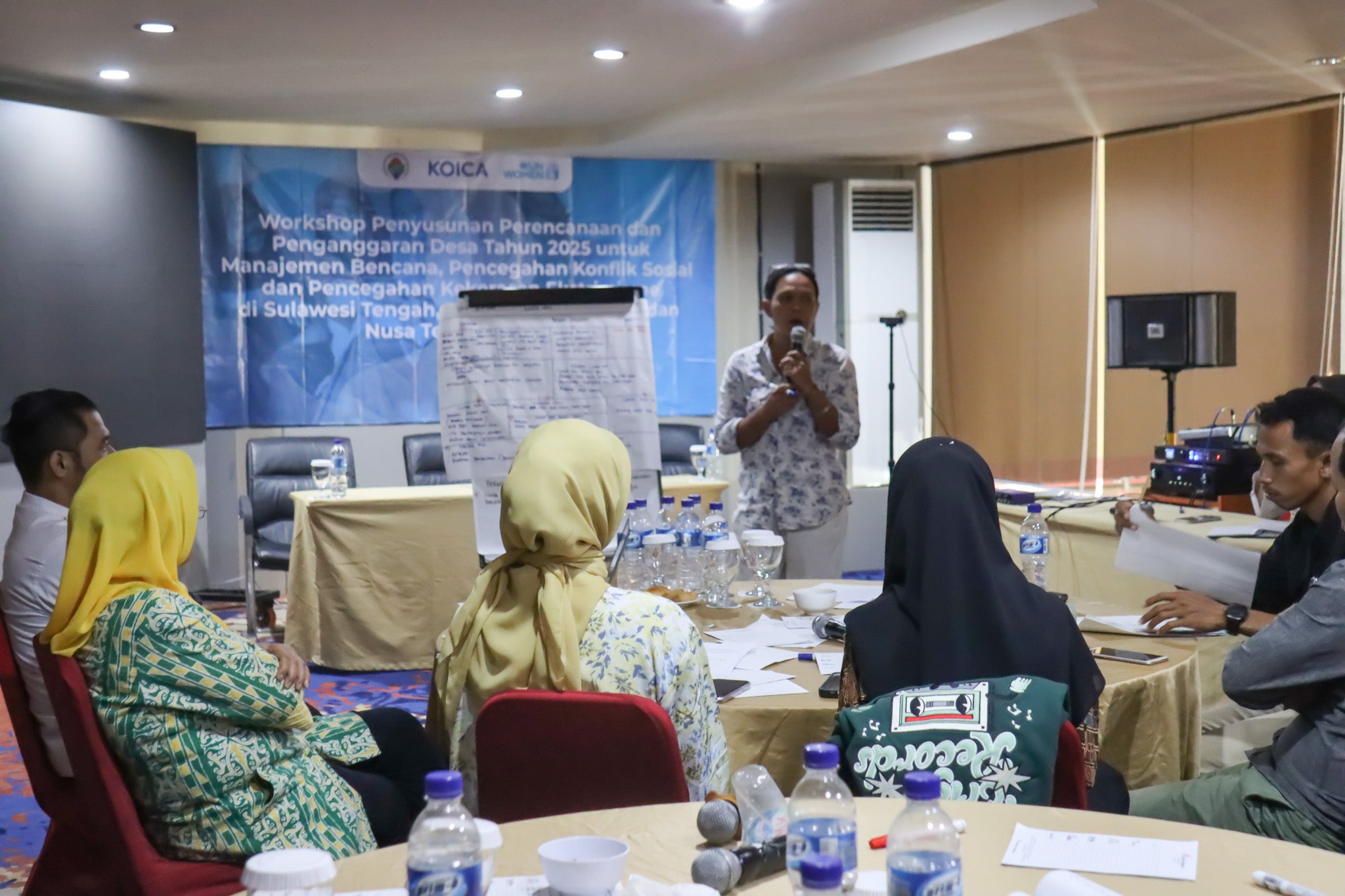UN Women supports villages in Indonesia to build resilience from disasters, social conflicts and violent extremism through gender-responsive planning and budgeting
Date:
Authors: Mutia Salma, Chaehee Kang, Ryan Rihi
Palu City, Indonesia – UN Women has worked with the Indonesian Government to train villagers on how to best use resources to build resilience in three provinces long prone to natural disasters, social conflicts and violent extremism: Central Sulawesi, East Nusa Tenggara and West Nusa Tenggara.
A total of 157 people from 20 villages attended the trainings that UN Women and the Ministry of Villages, Disadvantaged Regions, and Transmigration organized in July 2024 in Central Sulawesi, East Nusa Tenggara and West Nusa Tenggara Provinces. The participants included government officials, head of village, village councils, women representation and youth representation.
Under Indonesia’s decentralized system, the central government provides authority for the village government to lead and manage the village fund. To strengthen this strategic role of village government, the Ministry of Village, Disadvantage Regions and Transmigration and UN Women co-organized a series of training to develop gender responsive planning and budgeting for the fiscal year 2025 to support the development of village programme on disaster management, prevention of social conflicts and prevention of terrorism/deradicalization.

“Given the high vulnerability of Indonesian villages to both natural and non-natural disasters, preparing comprehensive disaster management strategies is important,” said Anastutik Wiryaningsih, Coordinator for Disaster Management and Climate Change, Ministry of Villages.
“My village has been known by its cross-village conflict since 2013 and it still lasts today,” Tri Indriyani, a women’s group representative from Pesaku Village said during the workshop in Palu City, Central Sulawesi Province.
In addition, Asti Apolia Bessie, a youth group representative from Tuapakas Village in Kupang City, East Nusa Tenggara Province, said that climate change and drought are causing crop failures; sanitation problems, especially for women; and reduced income.
Eni Widiyanti, Assistant Deputy for Women’s Rights for Household and Vulnerability, Ministry of Women Empowerment and Child Protection, said, “Socioeconomic disparities often leave women vulnerable with additional burdens.” Therefore, inclusive process on the village planning and budgeting is essential to ensure meaningful participation of women in decision-making process.

During the workshops, the villages and local partners not only committed to integrate the gender responsiveness in village budgeting and planning, but also discussed ways to reconcile and build peaceful social relations. Os Y. Tasi, a government officer in Oefafi Village in Kupang District, highlighted the connection between drought and social conflicts in his village: "Because we have failed in both planting and harvesting, there is no income. When there is no income, conflicts arise, both within families and in the community.”
Kurniatun, a representative of women from Pombewe Village in Central Sulawesi Province, said the workshop has facilitated discussion with relevant stakeholders within the village on ways to resolve the prolonged conflicts over land disputes caused by unclear borders and cattle slaughtering cases by other villages. The discussion has listed some of the proposed solution which will be embedded within the village planning and budgeting for next year i.e. propose land certification.

The workshops were organized as part of the project, Empowered Women for Sustainable Peace: Addressing the Peace-Humanitarian Nexus to Enhance Community Resilience in Indonesia. The project, which runs from June 2023 to June 2026, is implemented by UN Women.